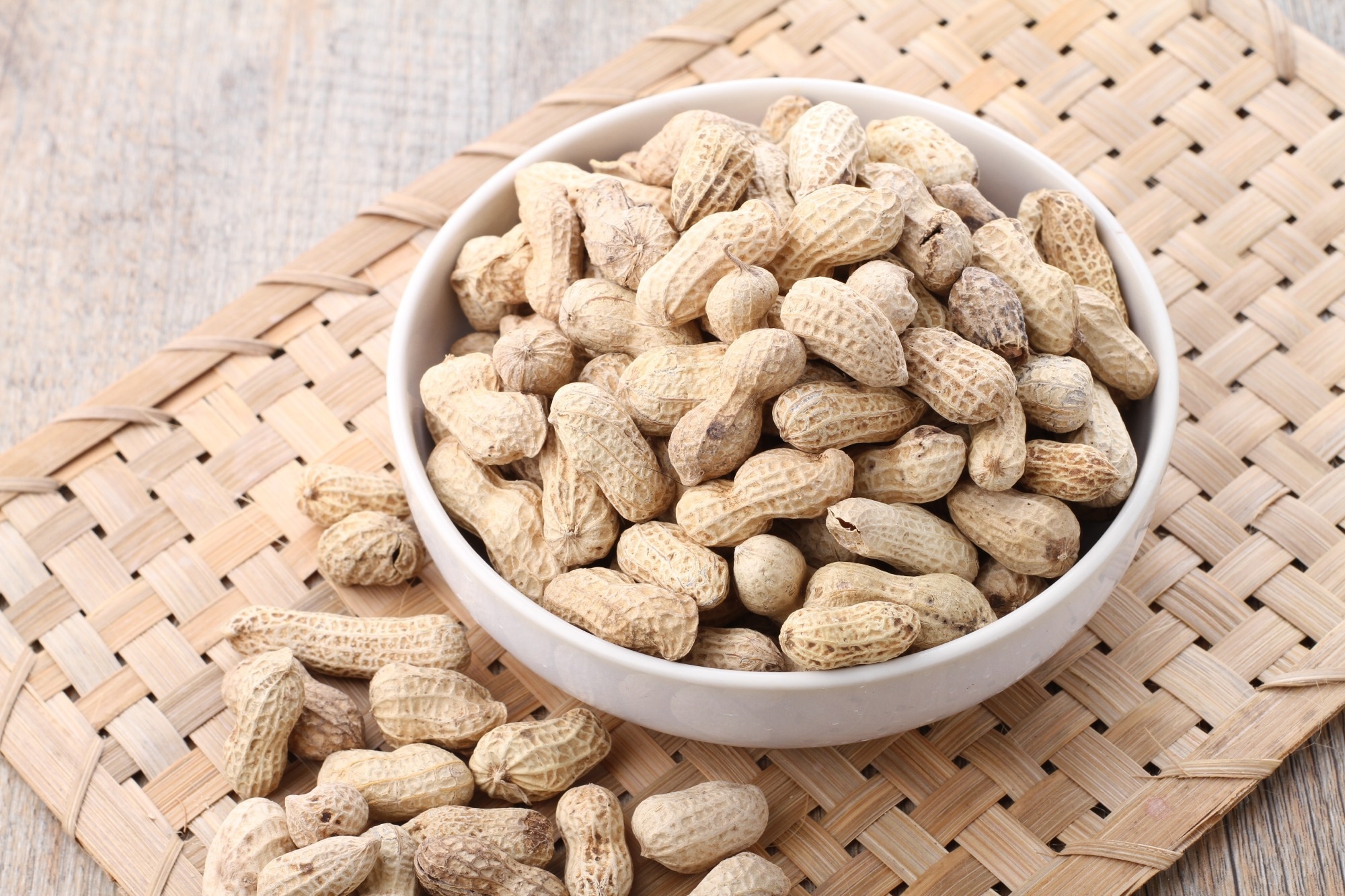A recent study published in the Annals of Allergy, Asthma, and Immunology Journal aimed to determine whether maternal consumption of peanut protein while breastfeeding protects the infant from peanut allergies.
 Study: The Protective Effect of Moderate Maternal Peanut Consumption on Peanut Sensitization and Allergy. Image Credit: Ricky_herawan/Shutterstock.com
Study: The Protective Effect of Moderate Maternal Peanut Consumption on Peanut Sensitization and Allergy. Image Credit: Ricky_herawan/Shutterstock.com
Background
The growing incidence of food allergies within the population is a cause for concern, in which research has focussed on alleviating the issue. The growing incidence of allergies is not only a physical issue but also has social and mental health implications.
A new paper describes the outcome of exposing infants to peanuts via breastmilk, that is, by maternal consumption of peanuts during lactation.
Introduction
Peanut allergy is common in much of the developed world. Many professionals have therefore recommended the early introduction of peanuts into the infant diet, following the beginning of solid feeds at six months, to help protect against sensitization to peanuts. This follows the general guidelines for allergenic foods.
These recommendations are based on the theory that exposure to allergens through the skin causes allergic responses, but consistent oral exposure to food allergens induces oral tolerance.
However, it has been difficult to prove since trials on the early introduction of foods have still shown benefits in the prior sensitization to the allergenic food, perhaps through the environment or breastmilk.
Mouse studies have shown that environmental and lactational exposure is associated with allergies and oral tolerance. Still, human data is inconclusive.
The Learning Early About Peanut Allergy (LEAP) study showed a drastic reduction in peanut allergy in high-risk infants if they were introduced to peanuts early.
However, little is known about how peanut consumption by the mother helps or harms in avoiding or preventing peanut sensitivity in the infant.
The current study aimed to explore whether the mother's intake of peanut protein protected against peanut allergies in the infant even without the protective introduction of peanuts.
The researchers analyzed the data from LEAP study participants who avoided peanut consumption to find out how maternal exposure to peanuts during pregnancy and lactation impacted the incidence of peanut allergy in the infant.
The LEAP cohorts included infants with severe eczema, egg allergy, or both, making them high-risk cohorts.
Mothers in this cohort showed comparable levels of peanut consumption with the peanut consumption cohort. One in seven infants in the peanut avoidance arm showed evidence of sensitivity following an oral food challenge (OFC) at five years of age, and one in five by a skin prick test (SPT).
Thus, this could help to understand whether peanut allergy in this high-risk group, where peanuts were not introduced until a late stage, was impacted by maternal peanut consumption during lactation.
What did the study show?
The analysis included about 300 infants. Of these, a tenth had mothers who ate over 5g of peanuts per week on average, vs. 70 who had less than 5g per week.
Approximately 180 avoided peanuts during lactation. The effect was not observed for those whose mothers ate peanuts during pregnancy.
Peanut sensitivity and allergy occurred at lower levels in infants whose mothers ate moderate amounts of peanuts during lactation (up to five grams per week) vs. those whose diets did not include peanuts or those who ingested large amounts of peanuts during this period.
The former showed a positive OFC and SPT in 7% and 10% of cases, respectively, while non- or high-consumers tested positive in a fifth and a quarter of cases, respectively, for these tests.
Other risk factors for peanut sensitivity and allergy by five years of age included ethnicity, which reduced the risk for sensitivity and allergy by over half and by a third, respectively. The baseline peanut STP wheal size increased the risk for sensitivity and allergy fivefold and threefold, respectively.
Infants of mothers who did not have peanuts at all during breastfeeding had a threefold higher risk of sensitivity or allergies to peanuts, with the same degree of increased risk in those with a baseline SCORAD below 40.
Sensitivity was increased in infants born to mothers with asthma, while allergies were higher in those born to fathers with rhinoconjunctivitis or who had a positive SPT for any non-peanut allergen. The allergy risk was lower for females with an eczema history in the father.
The results suggest that protective oral exposure to peanuts occurs in infants whose mothers eat peanuts in moderate amounts while lactating without causing skin exposure and the resulting allergic response.
Conversely, high maternal consumption of peanuts appeared to supersede or prevent oral tolerance development by inducing skin exposure.
What are the implications?
Moderate consumption (<5 g/w) of peanuts while breastfeeding provides a significant protective effect against peanut sensitization."
However, the impact on peanut allergy in later life was not significant in high-risk infants who were not exposed to peanuts early in life.
Further studies should examine the thresholds at which oral tolerance vs transcutaneous sensitization is induced during the first six months of life.
-
Landau, T., Vakulenko-Lagun, B. and Brandwein, M. (2023) "The Protective Effect of Moderate Maternal Peanut Consumption on Peanut Sensitization and Allergy", Annals of Allergy, Asthma & Immunology. doi: 10.1016/j.anai.2023.04.012.https://www.sciencedirect.com/science/article/abs/pii/S108112062300265X.
Posted in: Child Health News | Medical Science News | Medical Research News | Medical Condition News | Women's Health News | Disease/Infection News
Tags: Allergen, Allergy, Asthma, Breastfeeding, Diet, Eczema, Food, Immunology, Mental Health, Peanut Allergy, Pregnancy, Protein, Research, Rhinoconjunctivitis, Skin

Written by
Dr. Liji Thomas
Dr. Liji Thomas is an OB-GYN, who graduated from the Government Medical College, University of Calicut, Kerala, in 2001. Liji practiced as a full-time consultant in obstetrics/gynecology in a private hospital for a few years following her graduation. She has counseled hundreds of patients facing issues from pregnancy-related problems and infertility, and has been in charge of over 2,000 deliveries, striving always to achieve a normal delivery rather than operative.
Source: Read Full Article
